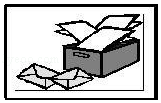A man sat at an underground station in Washington, D. C. and stared to play the violin. It was a cold day in January.He played(巴赫) pieces about 45 minutes. Thousands of people went through the station in a hurry, most of them on her way to work.
Three minutes went by and the first person. a middle﹣aged man, noticed there was a musician Playing.He slowed down and stopped for a few seconds and then hurried up to go to work.
After a minute, received his first dollar,a young woman threw the money in the Box.and continued to walk. Then another few minutes went by and someone stood against the wall to listen to him, but he young man looked at his watch and shared to walk again.Clearly he was late for work.
During the musician's performance, only a few people gave response(反应) to him: six people stopped and stayed for a while, twenty gave him money but continued to walk.When he finished playing, no one applauded (鼓掌): No one knew the violinist was Joshua Bell,one of the best musicians in the world.
This is a real story. Joshua Bell playing in the underground station was organized by The Washington Post( 《华盛顿邮报》)as part of a social experiment (实验). What we learn from this experiment could be: If we do not have a moment to stop and listen to one of the best musicians in the world playing the best music, how many other nice things are we missing?
(1)When did the story take place?
| A. |
On a cold morning. |
| B. |
On a warm afternoon. |
| C. |
On a rainy evening. |
| D. |
On a windy weekend. |
(2)Who was the first person to notice the musician playing?
| A. |
A young woman. |
| B. |
A small girl. |
| C. |
A young man. |
| D. |
A middle﹣aged man. |
(3)How many people gave response to the musician's performance?
| A. |
6. |
| B. |
20. |
| C. |
26. |
| D. |
45. |
(4)Who was Joshua Bell?
| A. |
A well﹣known reporter. |
| B. |
A poor artist. |
| C. |
An excellent violinist. |
| D. |
A famous pianist. |
(5)What was the writer's purpose of writing this passage?
| A. |
To let us know the importance of saving time. |
| B. |
To make us pay more attention to nice things around. |
| C. |
To find out what people usually did in the underground. |
| D. |
To do a survey on how many people were interested in music. |






 粤公网安备 44130202000953号
粤公网安备 44130202000953号